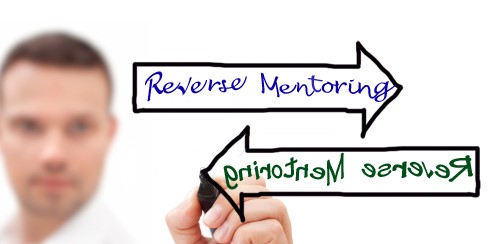T2P 9 – Career Aids & Guide 2/2
- Temis2Pence

- Jul 16, 2021
- 4 min read
Happy Friyay! The sun is shining in London and I won’t be taking that for granted this weekend as I look to play some more tennis and generally go out. However on Sunday it was quite the contrasting weather, it was damp and wet, little did I know this would be pathetic fallacy for the events to come Sunday evening. So it didn’t come home, rather it went to Rome. From a purely football perspective, I’m gutted as I feel a HUGE opportunity has gone. On a societal perspective it was a great journey to the final to witness, there was such a sense of unity until the deciding penalty save. A lot of that unity felt overshadowed by the racist abuse sent towards Saka, Sancho and Rashford, very quickly they went from heroes to zeroes in a lot of people’s eyes. This was uncomfortable and disappointing to see, yet pretty predictable, but I do feel it shows why schemes such as reverse mentoring can be impactful.
Reverse Mentoring, what is it you ask? Reverse mentoring is simply the opposite format of traditional mentoring, where the senior leader is mentored by a younger or more junior employee. Senior staff learning does not stop once they reach their positions and one source of learning is from junior staff. Reverse mentoring can offer new perspectives to senior staff and offers benefits to both mentee and mentor, as a mentor you can walk mentees topics only covered at a surface level. It has been good for BAME, LGBTQ, disabled, and other minority employees to grow their leadership network. With a developed leadership network it can help to tackle the reduced diversity in senior roles. This has been a popular scheme employed in the civil service, in my experience as a reverse mentor it was really rewarding. I set the agenda for the sessions and was able to highlight unchecked incidents of prejudice/racism to my mentee that is often so subtle in the media. Following the completion of the scheme, I’ve remained in contact with my mentee and we will certainly discuss the racist fallout of the England game, particularly those feelings of discomfort following the result. To get the most out of it, I’d recommend setting out terms for what both parties want from this, and from there running with it. By running with it, I mean come to the sessions prepared, note topics that could be of interest to discuss in your sessions. Through reverse mentoring, Procter & Gamble paired senior leaders with employees with disabilities in its reverse mentoring program. Through the mentoring relationships, leaders quickly learned that internal videos were not accessible to employees with hearing challenges.
I wrote about traditional mentoring last week, and I didn’t touch much on finding a mentor! To find a mentor I’d recommend checking if your company offers mentorship schemes, a lot do and that can save the trouble of searching. Searching in itself is not bad, if you take that route it gives you more choice with there being more staff available that way. When selecting a mentor it would be helpful to choose someone who you share a common theme with, are they in the same company or profession for example. Also, when approaching someone to be a mentor, try not to come in cold, be personable, research them and ask about their projects, past or present.
Through doing the Bridges programme I was set up with a mentorship group, and we have become Accountability partners to each other. An accountability partner is a person who coaches another person in terms of helping the other person keep a commitment. I find that I am my own best friend and worst enemy at times, one example of this for me is gym. Having a gym partner has been great for me pushing through hurdles of not wanting to go or pushing myself further (especially with cardio). Having a gym partner is pretty common, and having an accountability partner in your career should be just as common. With mentors, coaches & sponsors there is a common theme of assumed seniority, this doesn't tend to be the case in accountability partnerships. It’s helpful to pick like minded people to be your accountability partners, they could be family, friends or colleagues. It's easy to say to yourself you'll do this and that and not to, but it becomes different when you’ve now made this commitment to your accountability partners. To get the most out of accountability partnerships, set SMART goals and check in regularly with each other on those goals. I’m grateful for mine, they offered me support, reviewing my applications and running mock interviews in preparation for my new role.
With Accountability partnerships:
- Bring your problems
- Bring your successes
- Create plans
- Be ready to be held accountable
An additional career aid is a sponsor. A career sponsor is someone who is both influential and willing to go to bat for you. Sponsors have the potential to excel your career rapidly, but for them to vouch for you, they will need a relationship with you. Sponsors generally come from existing relationships such as mentors, Carla Harris in the above video explains the power of a sponsor and why they are essential the higher you want to go. The weekend is here, why not spend some time considering who could be your mentor (or next one). For those with a mentor, how did you find your first or most recent mentor?
Temis2Pence






Comments